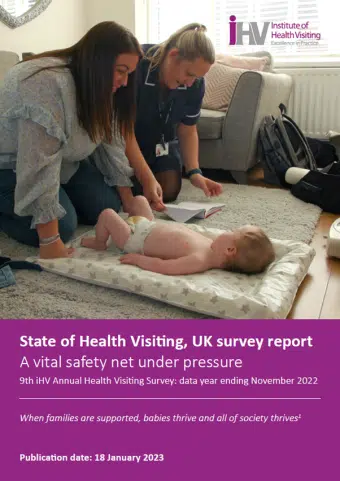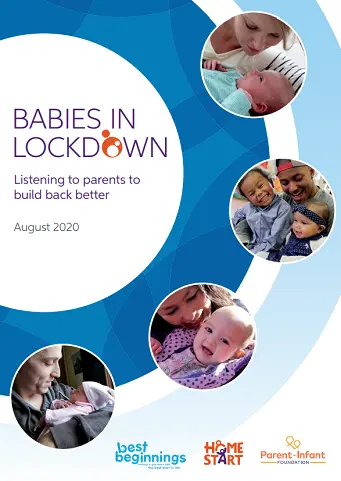As well as supporting health visitors, one of the iHV’s most important roles is to influence policies that affect the health of babies, children and families. We do this in a number of ways – by working with policymakers and politicians across the UK and by raising the profile of what health visitors do, and its importance in a modern healthcare system.
We are fortunate to live in a time when we have more evidence than any other generation on the importance of getting it right in the earliest years of life – alongside supporting every child to reach their full potential, investing in these formative years also makes sound economic sense.
It is now time for the future government to step up to the plate to make “giving every child the best start in life” a reality!
Alongside tackling the wider determinants of health, all families should expect modern health services during pregnancy, the postnatal period and the earliest years of life that are on a par with the best in the world. Currently, families with babies and young children face a postcode lottery of support, health inequalities are widening, more children are falling behind with their development and are being harmed by conditions that are entirely preventable. Families are calling for better care.
On 4 July, voters will be going to the polls to decide which party they will trust with the leadership of our country, with health as one of the key issues.
The iHV is calling for a significant increase in the number of health visitors in England with three clear asks of the next government:
Policy: All families should receive the full offer of health visiting support as set out in national policy in the Healthy Child Programme and Health Visiting Model for England.
Asks:
- Funding: All areas need sufficient funding to deliver the full specification for the national health visiting model and Healthy Child Programme Schedule of Interventions. Long-term investment, with ring-fenced funding, will help services to plan and build world-class services, ending the uncertainty of short funding cycles.
- Workforce: The national long-term workforce plan to retain, train and reform the health visiting workforce needs to be delivered in full, alongside funding for substantive posts. Demand-driven workforce modelling is needed to ensure that the workforce plan enables sufficient capacity to deliver the Healthy Child Programme to all babies, children and families as intended – it is estimated that 5,000 more health visitors are needed to meet the scale of families’ needs and replace workforce losses since 2015.
- Governance: Update OHID 0-19 Commissioning guidance – providing greater clarity and system levers to ensure equity of health visiting provision throughout England and ending the current postcode lottery of support that families face during pregnancy, postnatally, and through the first five years of their child’s life.
Key Messages:
- Children born in England have some of the worst child health outcomes compared to other similar nations, with widening health inequalities, growing concerns about invisible vulnerable children, and soaring costs of late intervention. Tackling this requires a whole system response, including action to address the wider determinants of health. Action is also needed at an individual and community level to prevent, identify and treat problems before they reach crisis point. Health visitors provide an important part of the solution. When sufficiently resourced, they provide a vital infrastructure of support for families with babies and young children – with benefits that accrue across the health, education and social care system.
- There are currently no levers to ensure that national policy set out in the Healthy Child Programme and Health Visiting Model for England are delivered. Families face a postcode lottery of support, with health visiting services experiencing significant cuts and role drift from their core “health” functions across numerous clinical pathways during pregnancy, postnatally, and throughout the early years. The needs of babies, children and families do not vary that much between local authority areas to justify the current variation in health visiting services across England.
- Health visiting is the only service that proactively and systematically reaches all families from pregnancy and through the first five years of a child’s life. This provides support for all families across a breadth of physical health and mental health needs (for babies, children and adults), child development, social needs and safeguarding, and a vital safety-net for the most vulnerable that is not provided by any other service.
- Cuts to health visiting services are having knock-on consequences across the health, education and social care system (for example, falling immunisation rates, fragmented postnatal care, increase in A&E attendance for children 0-4 years, inequalities in obesity rates, poor school readiness and soaring costs of late intervention/ child protection). Through their specialist public health role, health visitors can prevent, identify and work with families to treat problems before they reach crisis point.






